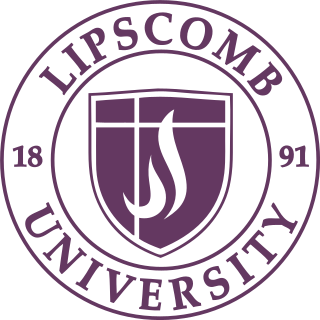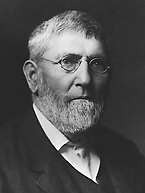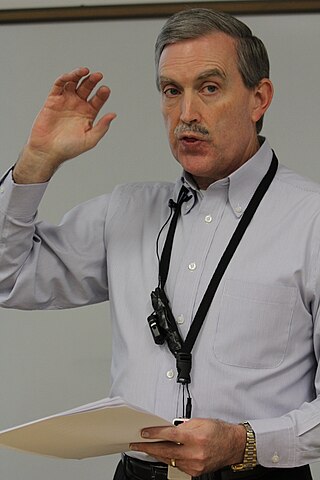Related Research Articles

Lipscomb University is a private university in Nashville, Tennessee. It is affiliated with the Churches of Christ. The campus is located in the Green Hills neighborhood of Nashville, between Belmont Boulevard to the west and Granny White Pike on the east. Student enrollment for the fall 2016 semester was 4,632, which included 2,986 undergraduate students and 1,646 graduate students.
Harding University is a private university with its main campus in Searcy, Arkansas. It is the largest private university in Arkansas. Established in 1924, the institution offers undergraduate, graduate, and pre-professional programs. The university also comprises Harding School of Theology, located in Memphis, Tennessee, which was formerly known as Harding Graduate School of Religion. Harding is one of several institutions of higher learning associated with the Churches of Christ.

David Lipscomb was a minister, editor, and educator in the American Restoration Movement and one of the leaders of that movement, which, by 1906, had formalized a division into the Church of Christ and the Christian Church. James A. Harding and David Lipscomb founded the Nashville Bible School, now known as Lipscomb University in honor of the latter.

Tolbert Fanning was one of the most influential leaders of what came to be called the American Restoration Movement. Born in what would later become Cannon County, Tennessee. He was man of many talents in both religion and agriculture: preacher, college founder and professor, journalist, writer, and editor. For his era he was considered an innovative farmer writing and co-editing magazines, Agriculturalist from 1840-1845 and the Naturalist from 1846-1850. His greatest influence was as much from his successful publications The Christian Review and Gospel Advocate, as much as from his circuit preaching. The most influential publication he founded, Gospel Advocate, inspired a former Franklin college student, David Lipscomb, who would follow Fanning as its editor. Fanning’s magazine provided a platform for purveying views and opinions relating to doctrine and church practice. It was through this influence that led to the 1906 identification of the Church of Christ as a distinct religious body, 33 years after Fanning's death.
Robert Henry Boll was a German-born American preacher in the Churches of Christ. Boll is most known for advancing a premillennialist eschatology within the Churches of Christ, in articles written during his editorship of the front page of the Gospel Advocate from 1909 to 1915 and after 1915 in Word and Work, leading to a dispute which was a significant source of division within the Churches of Christ in the 1930s. Boll was one of the most influential advocates for the premillennial point of view, and was most singularly opposed by Foy E. Wallace Jr. By the end of the 20th century, however, the divisions caused by the debate over premillennialism were diminishing, and in the 2000 edition of the directory Churches of Christ in the United States, published by Mac Lynn, congregations holding premillennial views were no longer listed separately.
Benton Cordell "B. C." Goodpasture was a preacher and writer in the Churches of Christ. A contributing writer to the Gospel Advocate starting in 1920, in 1939 he became the publication's editor, a post he held until his death. He was the namesake of Goodpasture Christian School in Nashville Tennessee, named in his honor in 1965.
Foy Esco Wallace was an influential figure among American Churches of Christ in the early and mid-20th century. Through his writing and speaking, Wallace gathered a considerable following among that autonomous group of churches. His skilled use of logic, combined with his charisma, propelled him to the forefront of at least three major controversies in the Churches of Christ.
Marshall Keeble was an African American preacher of the church of Christ, whose successful career notably bridged a racial divide in an important American religious movement prior to the Civil Rights Movement. Over the course of his 50-year career as a gospel preacher, he was credited with starting almost every African-American church of Christ in the state of Tennessee. Keeble enjoyed an almost unrivaled position as an African-American subject of hagiographical biography by white contemporaries within the church of which Keeble was a member. A notable example of this is Roll Jordan Roll by fellow minister and longtime Keeble associate, J. E. Choate.
Maxie D. Dunnam (1934-) is a United Methodist Church minister, evangelist, Bible commentator and writer. He is a past president of World Methodist Council. He is currently President Emeritus of Asbury Theological Seminary.

James Alexander Harding was an early influential leader in the Churches of Christ.

Batsell Baxter was one of the most important leaders and educators in the Churches of Christ in the first half of the 20th century.
Grover Cleveland Brewer (1884–1956) was among the most famous 20th-century leaders in the Churches of Christ. He was said to be "among the giants of the brotherhood". "G. C." Brewer was named for U.S. President Grover Cleveland. Brewer is generally known by his initials. He was born in Giles County, Tennessee; he died in Searcy, Arkansas, on June 9, 1956. He was an author, preacher, and teacher, serving on the faculty of Lipscomb University. His persuasive rhetoric and passionate oratory have been noted, along with his uncanny ability to define mainstream biblical doctrine in the mid-20th century. G. C. Brewer challenged Catholicism and Communism. He also demonstrated a willingness to change his views, especially those regarding the doctrine of grace.

Douglas A. Foster is an American author and scholar known for his work on the history of Stone-Campbell Restoration Movement.
Dr. Rubel Shelly is an author, minister, and professor at Lipscomb University. He is the former president of Rochester University.

David Samuel Dockery is the President of the International Alliance for Christian Education. He is also Distinguished Professor of Theology and on April 19, 2023 was elected the 10th President of Southwestern Baptist Theological Seminary. Formerly he served as Trinity International University's 15th president. He was elected to that presidency on February 28, 2014.
Thomas Bratton Warren was an American professor of philosophy of religion and apologetics at the Harding School of Theology in Memphis, Tennessee, USA, and was an important philosopher and theologian in the Churches of Christ during the latter half of the twentieth century.
James Oglethorpe Patterson Jr. was a Holiness Pentecostal minister in the Church of God in Christ and a former Mayor of Memphis, Tennessee, the first African-American to hold the office.
Gary Holloway is the executive director of the World Convention of Churches of Christ.
Matt Norvel Young, known as M. Norvel Young, was an American academic administrator. He served as the president of Pepperdine University from 1957 to 1971 and as its chancellor from 1971 to 1985. He was the author of five books.
H. Leo Boles was an American preacher and academic administrator. He was a minister of the Churches of Christ and the president of David Lipscomb College. He was the author of several books.
References
- 1 2 3 4 5 6 Foster, Douglas A.; Dunnavant, Anthony L.; Blowers, Paul M.; Williams, D. Newell, eds. (2012). The Encyclopedia of the Stone-Campbell Movement. Grand Rapids, Michigan: Wm. B. Eerdmans Publishing. p. 412. ISBN 9780802869753. OCLC 818143410.
- 1 2 3 4 5 "Ex-Lipscomb President E. H. Ijams Services Set" . The Tennessean. July 16, 1982. p. 30. Retrieved October 5, 2018– via Newspapers.com.
- ↑ "Harding College Professor To Make Alabama Christian College Address" . The Montgomery Advertiser. May 18, 1962. p. 15. Retrieved October 5, 2018– via Newspapers.com.